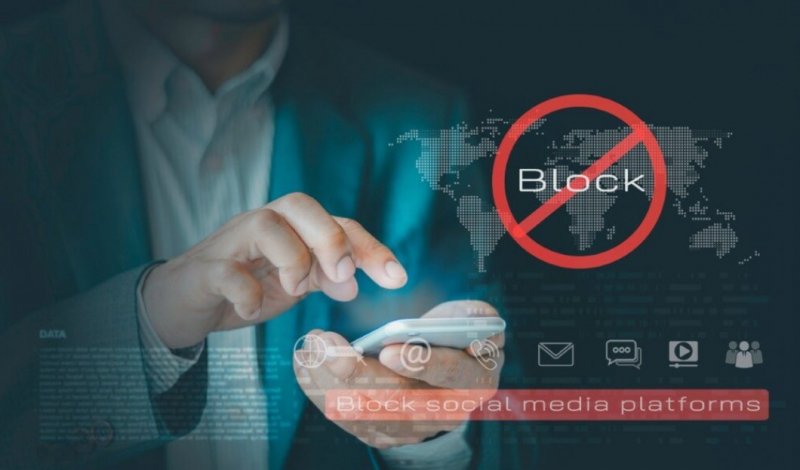In our notification-saturated world, a quiet shift is taking place within hotels and resorts. Travelers, it seems, are growing tired of constant digital engagement, opting instead for sunsets and a bit of peace. “Digital detox” programs are becoming increasingly popular, transforming vacations into mindful breaks from technology where the ultimate luxury is uninterrupted peace. Across the globe, hotels are enticing guests to power down, suggesting that less screen time might just translate to more life.
How Digital Detox Programs Work
The core of the digital detox lies in deceptively simple yet effective protocols designed to encourage real disconnection. Upon arrival, guests can surrender their phones, tablets, and laptops to a secure location, much like checking a coat. In exchange, hotels typically offer a range of offline alternatives: morning yoga, hikes in nature, sound baths, creative writing sessions, cozy reading areas with classic books, and even explorations of local cuisine.
To sweeten the deal, many hotels now offer tech-free zones. “Wi-Fi-free rooms” eliminate internet access, while “screen-free zones”—like spa gardens or communal dining areas—are gently enforced with signage. Places like Barnsley Resort in Georgia, or Mashomack Preserve on Shelter Island, New York, have made this a core offering, where the only “likes” come from shared experiences over tea.
This isn’t just a gimmick; it’s a response to a genuine need. As one detox participant mentioned after a week in the Swiss Alps, “I had actually forgotten what real quiet felt like—my own thoughts, not just endless TikTok videos.”
From FOMO to JOMO: The Psychology of Powered-Down Paradise
The digital detox trend reflects our evolving understanding of our relationship with technology. We’ve probably all heard of nomophobia—the anxiety of being without a phone—and perhaps even telephonophobia, a dislike of phone calls. And then there’s FOMO, that fear of missing out that drives late-night scrolling. But consider JOMO: the “joy of missing out,” a celebration of being intentionally, blissfully unaware.
JOMO is practically the mascot of nature-focused havens, from retreats in Bali to spas in Iceland. Here, disconnection isn’t about deprivation; it’s about enhancement. Studies are increasingly connecting too much screen time to higher stress levels, anxiety, and poor sleep—problems that no filter can solve. A 2023 APA report showed that just one day offline could lower cortisol by up to 30%, potentially leading to significant emotional recovery.
For many, this represents a redefinition of luxury. In a world that’s always connected, the ability to disconnect may well be the ultimate privilege. Wellness consultant Elena Vasquez puts it this way: “Digital detox is the new caviar. It’s exclusive because it requires effort—the effort of leaving the world behind to rediscover yourself.”

Digital Detox: A Booming Business Model
What started as a small trend has grown into something significant. The global wellness travel market, valued at $814 billion in 2024, is expected to grow by about 7% annually through 2028, with digital detox experiences representing a substantial portion. Hotels are not only adapting to this, but they’re also profiting from it. Some, like a boutique hotel in Tuscany, add extra charges for “uninterrupted immersion” packages, while others provide rewards, such as free spa treatments for each device-free day, or upgrades for those who avoid screens.
Click here to preview your posts with PRO themes ››
This strategy—either charging extra or offering rewards—generates both interest and discussion. Charging extra for using devices, however, can seem a bit harsh. Communal areas promoting digital detox can certainly boost compliance, but they also underscore a critical point: digital equity. In our hyper-connected world, where being online is both a requirement and a source of stress, a complete digital break can seem like a luxury, primarily accessible to those who don’t have to worry about constant emails or checking in with family.
However, the benefits appear substantial. Properties are reporting improved guest satisfaction scores (20-30% increases are typical) among detox participants, which leads to positive feedback and return visits. This emerging niche is not only proving profitable but also forward-thinking, as millennials and Gen Z, who are increasingly important in the travel market, value mental relaxation over the need to share every moment on social media.
When Digital Detox Meets Reality
Not every traveler is prepared for a complete digital blackout, however. While enthusiasts extol the virtues of finding peace and quiet—unexpected conversations and relaxed sunrises—some critics lament the potential for isolation. “What if there’s an emergency?” one person asked on a travel forum. “Or a work crisis arises?” Moreover, privacy concerns are raised by some who dislike the idea of handing over their devices, fearing data breaches in this era of cyberattacks.
Hotels are adapting by providing nuanced options. “Flexible fasting,” as it’s called, provides scheduled tech breaks, such as an hour each day for essential communications, while “hybrid havens” provide device-friendly zones alongside the tech-free areas. Emergency procedures, for example on-call concierges with satellite phones, can alleviate worries without breaking the atmosphere. This level of personalization makes sure that digital detox is flexible rather than rigid, addressing a range of preferences from those who want a total blackout to those who prefer a partial break.
Harmonious Wellness Vacations
As we become ever more immersed in the digital world, the desire to disconnect is growing. Digital detox programs signal a larger change: Travel evolving from a checklist of destinations to a quest for self-reflection and renewal. This trend encourages innovation within the hospitality sector—imagine AI-free adventure apps or VR-simulated “unplugged” experiences—and it also prompts us to question how attached we are to our technology.
Ultimately, these getaways remind us of a long-standing idea: The best experiences are not about the pictures we take, but the feelings we have. Whether you are pursuing the “joy of missing out” in a Moroccan riad or a remote cabin in Finland, one thing is evident: The real connection we seek may be what we’ve been mindlessly scrolling past. So, next time you plan a trip, take a chance: Turn off the device. Turn up your soul.


